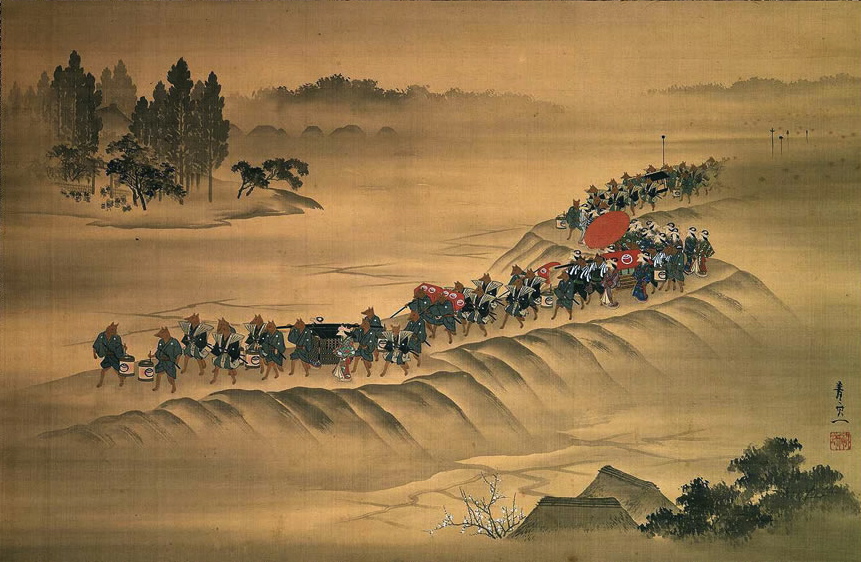Kitsune no Yome-iri
 Tuesday, August 9, 2011 at 10:27AM
Tuesday, August 9, 2011 at 10:27AM

Yesterday when I was playing tennis, it suddenly started to rain. There was nothing unusual about that--squalls had been forecasted for the evening and we knew it would rain sooner or later. The thing is, though, the sun was shining. There were some clouds in the sky, yes, but none of them were the dark and threatening kind of rainclouds you’d expect to see before such a downpour.
 We continued to play for a few minutes as the raindrops fell, thinking it would soon pass, but it didn’t. The rain just kept falling out of that seemingly cloudless sky above us. So, we gathered up our tennis balls, packed up our belongings and left the tennis court.
We continued to play for a few minutes as the raindrops fell, thinking it would soon pass, but it didn’t. The rain just kept falling out of that seemingly cloudless sky above us. So, we gathered up our tennis balls, packed up our belongings and left the tennis court.
I have written elsewhere about Japanese words for rain, of which there are said to be more than eleven hundred different terms. The most peculiar one by far has to be the phrase used to describe these sudden downpours in the sunshine: kitsune no yome-iri (literally, "a fox's wedding", or "a fox takes a bride").
Kitsune, or foxes, occupy a special place in the folklore and superstitions of the Japanese. They were said to possess magical abilities, one of which was the ability to assume human form. Statues of foxes can also be seen at Inari shrines, where they act as messengers for Inari Ôkami, the Shintô god of fertility and farming. In ancient times, people believed that whenever rain fell from clear skies a wedding between foxes was taking place. This folklore was captured in Katsushika Hokusai’s ukiyo-e of the same name (pictured to the right).
While the phrase kitsune no yome-iri generally refers a downpour in the sunshine throughout Japan, it can, according to Mr. Wiki, signify different meteorological phenomenon in some areas of the country. In Kumamoto, for example, it refers to the appearance of a rainbow, and in Aichi, the phrase relates to fog.
More from Mr. Wiki:
In America, there are words for the phenomenon, too. See "the devil is beating his wife".
Crowe's works are now available on Kindle. You can follow Crowe's tweets @AonghasCrowe or friend him on Facebook.
